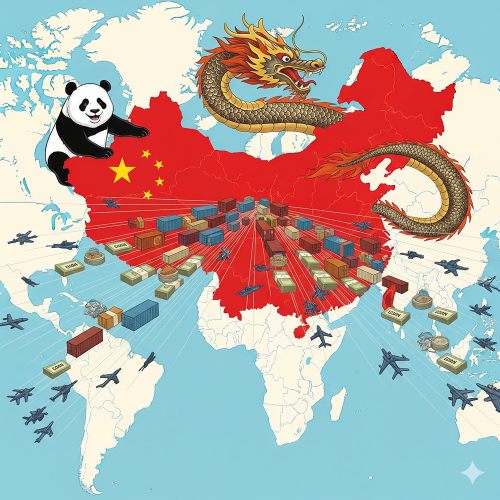How is Canada balancing its economic interests with its human rights stance on issues like Xinjiang, Tibet, and Hong Kong?

Canada is attempting to balance its economic interests with its human rights stance on issues like Xinjiang, Tibet, and Hong Kong by adopting a new, more realistic policy framework that labels China a "disruptive global power."
While Canada continues to engage in trade with China, it is increasingly using targeted measures and diplomacy to publicly condemn human rights abuses, protect its own citizens, and reduce its vulnerability to economic coercion.
This marks a shift away from the previous strategy, which assumed that deeper economic ties would lead to political liberalization in China.
Xinjiang, Forced Labor, and Supply Chains
Canada has taken a firm and public stance against China's human rights abuses in Xinjiang, which include the mass detention of Uyghur Muslims and other ethnic minorities, forced labor, and forced sterilization.
-
Condemnation and Sanctions: Canada's Parliament has passed a motion declaring China's treatment of the Uyghurs a genocide. The government has also joined its allies in imposing sanctions on Chinese officials and entities linked to the abuses. These actions are a clear reflection of Canada's commitment to its human rights principles, even at the cost of diplomatic friction with Beijing.
-
Supply Chain Measures: Canada has issued advisories to Canadian businesses, warning them of the risks of having forced labor in their supply chains. The Customs Tariff Act was amended to prohibit the importation of goods produced by forced labor, a measure enforced by the Canadian Border Services Agency. While this is a broad measure that applies to all countries, it is a direct response to the situation in Xinjiang. This policy is an example of Canada trying to use its regulatory power to address human rights issues without resorting to a full-scale trade ban.
Hong Kong and Democratic Freedoms
Canada has a strong interest in Hong Kong due to a large number of Canadian citizens residing there and significant historical ties. The imposition of China's national security law has forced Canada to take a more direct and assertive stance.
-
Immigration and Visa Policies: Canada has implemented a new immigration pathway for Hong Kong residents, making it easier for them to study and work in Canada. This policy provides a refuge for those facing political persecution and sends a clear message that Canada will stand with Hong Kongers.
-
Suspension of Agreements: In response to the national security law, Canada suspended its extradition treaty with Hong Kong, a move that was also taken by the UK, Australia, and the U.S. This was a significant step that prioritized the safety of Canadian citizens and human rights over the judicial relationship with Hong Kong.
Tibet and Religious Rights
Canada's stance on Tibet has been consistent with its human rights principles, but it has historically balanced this with a respect for China's sovereignty.
-
Diplomatic and Parliamentary Support: Canada has raised concerns about the human rights situation in Tibet, including the suppression of religious freedom and cultural identity. The Canadian Parliament has passed motions urging the government to support dialogue between Beijing and the Dalai Lama. Canadian officials have also raised the issue with their Chinese counterparts, both publicly and privately.
-
Limited Policy Impact: While Canada's rhetoric on Tibet is strong, its ability to influence Beijing's policy on the region is limited. Canada, like most countries, recognizes Tibet as part of China. Its human rights stance is therefore expressed primarily through diplomatic channels and public statements rather than economic sanctions or other forms of leverage.
In essence, Canada is walking a tightrope. It has recognized that its economic relationship with China cannot be separated from human rights and national security issues.
The new strategy is to maintain a level of economic engagement where it is mutually beneficial and where the risk is manageable, while at the same time using diplomatic pressure, sanctions, and targeted policies to protect its values and its citizens.
The goal is to avoid the pitfalls of a purely economic-first policy, which the Meng Wanzhou affair so clearly exposed, while not resorting to a full-scale confrontation that would harm the Canadian economy.
- Questions and Answers
- Opinion
- Motivational and Inspiring Story
- Technology
- Live and Let live
- Focus
- Geopolitics
- Military-Arms/Equipment
- Sécurité
- Economy
- Beasts of Nations
- Machine Tools-The “Mother Industry”
- Art
- Causes
- Crafts
- Dance
- Drinks
- Film/Movie
- Fitness
- Food
- Jeux
- Gardening
- Health
- Domicile
- Literature
- Music
- Networking
- Autre
- Party
- Religion
- Shopping
- Sports
- Theater
- Health and Wellness
- News
- Culture

